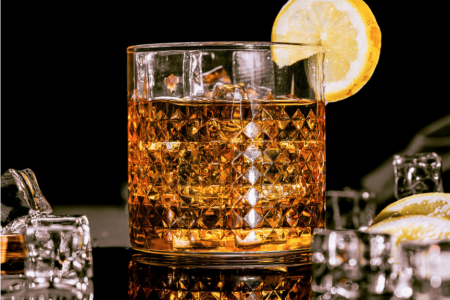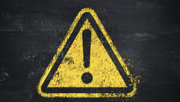This drink linked to cancer—experts urge caution!
By
Aubrey Razon
- Replies 0
A shocking warning from top US health officials could change the way you think about drinking. Alcohol is now classified as a proven carcinogen, and experts are speaking out.
The advisory from Surgeon General Murthy doesn't mince words: alcohol is directly linked to an alarming number of cancer cases and deaths each year.
To put it into perspective, the 20,000 cancer deaths annually attributed to alcohol surpass the fatalities from alcohol-related traffic crashes.

“Alcohol is a well-established, preventable cause of cancer responsible for about 100,000 cases of cancer and 20,000 cancer deaths annually in the United States[—]greater than the 13,500 alcohol-associated traffic crash fatalities per year in the [US—]the majority of Americans are unaware of this risk,” Murthy explained.
The Centers for Disease Control and Prevention (CDC) has identified several types of cancer that are associated with alcohol consumption.
These include cancers of the mouth and throat, voice box, esophagus, colon and rectum, liver, and breast cancer in women.
The list doesn't end there; heavy drinking may also increase the risk of stomach, pancreatic, and prostate cancer.
It's important to note that it's not the type of alcoholic beverage that matters, but the ethanol—the chemical in alcohol—that's the culprit.
Whether it's a fine wine, a craft beer, or a distilled spirit, the risk remains the same.
For years, we've heard about “safe” levels of drinking, but the latest science challenges this notion.
According to experts like Dr. Triona McCarthy, there's no “safe” amount of alcohol when it comes to cancer risk.
This is a significant shift from previous beliefs that moderate drinking could be harmless or even beneficial for certain health conditions.
How exactly does alcohol lead to cancer?
When we consume alcohol, our bodies convert ethanol into acetaldehyde, a toxic substance that can damage DNA in our cells.
"It's the actual alcohol," McCarthy stated.
"It's not the type of alcohol that you drink that increases your cancer risk. It doesn't matter whether it's wine or beer or spirits—it's the amount of actual ethanol, the chemical."
This damage can lead to uncontrolled cell growth, which is how cancer develops.
Additionally, alcohol can alter hormone levels, increasing the risk of hormone-related cancers such as breast cancer.
In light of these findings, Surgeon General Murthy has advocated for health warnings on alcoholic drink labels, similar to those on cigarette packs.
This move aims to increase public awareness and encourage informed choices.
Ireland has already passed legislation requiring such warnings, set to take effect in 2026, and there's a growing push for the US to follow suit.
 Have you or someone you know been affected by cancer and believe alcohol may have played a role? How do you balance the social aspects of drinking with these health concerns? Share your stories and insights in the comments below.
Have you or someone you know been affected by cancer and believe alcohol may have played a role? How do you balance the social aspects of drinking with these health concerns? Share your stories and insights in the comments below.
The advisory from Surgeon General Murthy doesn't mince words: alcohol is directly linked to an alarming number of cancer cases and deaths each year.
To put it into perspective, the 20,000 cancer deaths annually attributed to alcohol surpass the fatalities from alcohol-related traffic crashes.

Various types of cancer, including those of the mouth, throat, liver, and breast, have been associated with alcohol consumption. Image source: Nano Erdozain/Pexels.
“Alcohol is a well-established, preventable cause of cancer responsible for about 100,000 cases of cancer and 20,000 cancer deaths annually in the United States[—]greater than the 13,500 alcohol-associated traffic crash fatalities per year in the [US—]the majority of Americans are unaware of this risk,” Murthy explained.
The Centers for Disease Control and Prevention (CDC) has identified several types of cancer that are associated with alcohol consumption.
These include cancers of the mouth and throat, voice box, esophagus, colon and rectum, liver, and breast cancer in women.
The list doesn't end there; heavy drinking may also increase the risk of stomach, pancreatic, and prostate cancer.
It's important to note that it's not the type of alcoholic beverage that matters, but the ethanol—the chemical in alcohol—that's the culprit.
Whether it's a fine wine, a craft beer, or a distilled spirit, the risk remains the same.
For years, we've heard about “safe” levels of drinking, but the latest science challenges this notion.
According to experts like Dr. Triona McCarthy, there's no “safe” amount of alcohol when it comes to cancer risk.
This is a significant shift from previous beliefs that moderate drinking could be harmless or even beneficial for certain health conditions.
How exactly does alcohol lead to cancer?
When we consume alcohol, our bodies convert ethanol into acetaldehyde, a toxic substance that can damage DNA in our cells.
"It's the actual alcohol," McCarthy stated.
"It's not the type of alcohol that you drink that increases your cancer risk. It doesn't matter whether it's wine or beer or spirits—it's the amount of actual ethanol, the chemical."
This damage can lead to uncontrolled cell growth, which is how cancer develops.
Additionally, alcohol can alter hormone levels, increasing the risk of hormone-related cancers such as breast cancer.
In light of these findings, Surgeon General Murthy has advocated for health warnings on alcoholic drink labels, similar to those on cigarette packs.
This move aims to increase public awareness and encourage informed choices.
Ireland has already passed legislation requiring such warnings, set to take effect in 2026, and there's a growing push for the US to follow suit.
Key Takeaways
- US Surgeon General Vivek Murthy issued an advisory highlighting the strong link between alcohol consumption and an increased risk of cancer.
- Health experts suggest that there is no safe level of alcohol consumption concerning cancer risk, as alcohol is classified as a Group One carcinogen.
- Various types of cancer, including those of the mouth, throat, liver, and breast, have been associated with alcohol consumption, with the substance's harmful effects not depending on the type of alcoholic drink.
- There is a call for warning labels on alcoholic beverages to inform consumers about the cancer risks associated with drinking, following similar regulations approved in Ireland.






